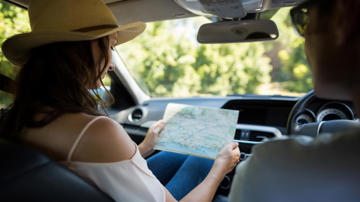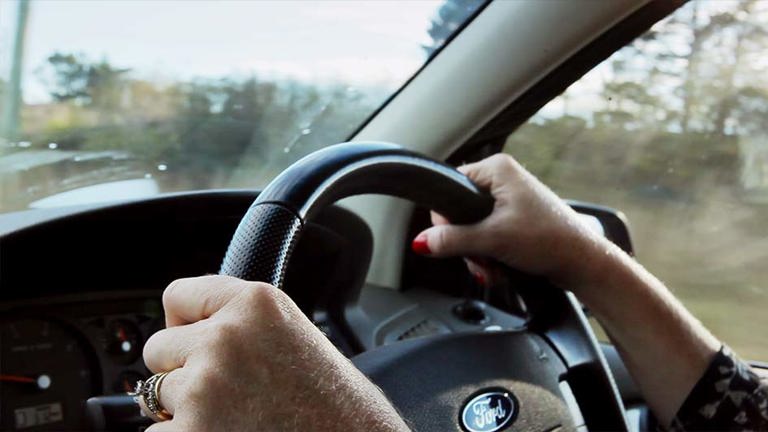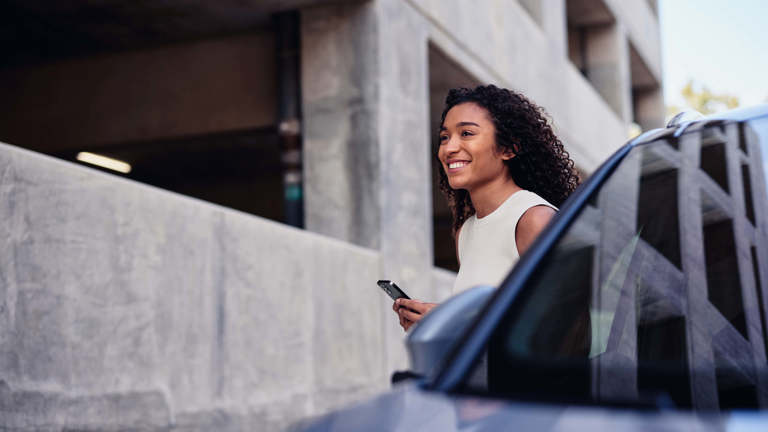You love your car, but that doesn’t mean it always loves you back. An inconvenient flat tyre or dead battery can catch you unawares. And while no one expects to get into a bingle, that doesn’t mean you can’t be prepared for the worst. Kitting out your vehicle with some helpful car essentials could be a good way to help you smoothly navigate those roadside hiccups.
One of the first ways you could look at being prepared is to consider investing in car insurance – but your preparation doesn’t have to stop there. From essential items to keep you and your car powered up to inclusions for your car tool kit, these 10 car must-haves could be a good idea to help give you a bit more confidence out on the road or a helping hand when you need it.
1. Your car manual
You’d be surprised how frequently your car manual can come in handy, particularly when unfamiliar lights start flickering on the dashboard. If you can’t find yours in the trusty glove compartment, you could always search for it on Manuals Online.
2. Jumper cables
In 2019, data from Digicall Assist (which partners with Youi to provide roadside assistance) showed that battery faults were the most common cause of car issues, accounting for more than 50% of its customers’ breakdowns.1 With jumper cables in your boot, there’s a chance you may be able to jump-start your dead battery, or help another motorist jump-start theirs, without having to call for help.
3. A spare tyre, socket wrench and jack
A flat tyre is one of those car problems you may be able to fix yourself – though you’ll probably need to have a spare tyre, socket wrench and jack handy, which most cars have tucked away in the boot. If you’re not sure how to change the tyre or just need a refresher, your owner’s manual should have you covered. This Queensland Government TyreSmart brochure also has some handy information on how to best maintain your tyres.2
4. A hazard triangle
Been wondering what that reflective, red, triangular sign in the boot of your car is for? It’s a hazard triangle and it can be particularly useful in a breakdown to alert other drivers that they’re approaching a stationary vehicle. You may also want to turn on your hazard lights so other motorists can see you’ve broken down.3
5. Water
Whether you’re stuck in traffic, waiting for roadside assistance or just have a long journey ahead of you, a bottle of water is essential for staying hydrated and alert on the road. Drivers have been shown to make more than double the mistakes if they’re dehydrated, with those who drive for long durations or in warm weather at greater risk of dehydration-related driving errors, such as lane drifting or late braking.4
6. A first-aid kit
In the unfortunate event that you’re involved in or witness to an accident, you might want to have a first-aid kit on hand in case there are any injuries. A good first-aid kit can help to lower the impact of an injury before getting proper medical care.5 Health Direct has a handy guide to basic first-aid kit inclusions and recommends you pack a reflective vest in the car as you may be near a road and traffic.
7. A portable charger
Unsurprisingly, your mobile phone is another item that can be helpful in emergency situations – for instance, if you end up stranded somewhere and need to call family or friends for help, or for roadside assistance. You can help make sure your phone is ready to go by keeping a fully charged power bank on you.
8. Printed maps
Although it’s easy to rely on your mobile phone or car GPS for directions, sometimes technology can fail or you may end up in an area with limited to no reception. One of your best car accessories might end up being a stash of some good old-fashioned maps, along with a torch, if you need to pull over to orient yourself. A pen and paper can also be handy to jot down directions.
9. Your insurance information
No matter how carefully you drive, you can’t control the actions of other drivers on the road. To ensure you’re prepared in the event of a collision, keep the details of your car insurance policy in your glove box. It could also be helpful to know what details you’ll need from the other parties involved.
According to Helen Savell, Youi Vehicle and Leisure Claims Manager, “The key pieces of information to get are the other drivers’ full names plus two of either their phone number, address, driver’s licence number or registration number for their vehicle involved in the incident. If we have all the information, we have a much better chance of seeking a recovery from the responsible party.”
10. Your driver’s licence – digital and hard copy
With the introduction of digital driver’s licences in Queensland,6 South Australia,7 New South Wales8 and Victoria in 2024,9 it begs the question – do you still need to carry a physical licence when travelling interstate? According to multiple state government sources, it’s probably a good idea.
While NSW and SA digital driver’s licences are technically accepted across the country, Service NSW and mySA GOV still advise drivers to carry their plastic cards with them when travelling interstate or overseas.10
Extra car essentials for young drivers
Learner drivers must always clearly display L-plates, so keep some in your car if you know a novice will be getting behind the wheel. We’ve put together a guide to the rules in different states and territories here.
Extra car essentials for EV drivers
You can forget the jerry can, but there are some car accessories that EV drivers might be glad to have in an emergency – specifically charging cables.
A portable charger comes as standard in many new EVs but if you have a used or imported EV, it’s wise to check you’ve got one on hand. A Type 2 cable might also be useful to have in case a public charging station doesn’t have one.11
Ready to hit the road? You might want to check that your car insurance is up to date and suitable for your needs. Consider starting a quote with Youi today.
1 Source: Digicall Assist – The most common causes of car breakdowns – and how to avoid them, 2019
2 Source: Queensland Department of Transport and Main Roads – TyreSmart Brochure
3 Source: Queensland Government – Breakdown safety on motorways and freeways, 2023
4 Source: National Road Safety Partnership Program – NRSPP Quick Fact: Hydration And Driving, 2022
5 Source: Health Direct – First Aid Kits, 2023
6 Source: ABC News – Digital driver’s licences go statewide in Queensland but users face delays, 2023
7 Source: ABC News – South Australia’s digital drivers’ licences to reduce possibility of forgery, Government says, 2017
8 Source: NSW Government – NSW digital driver licence
9 Source: Vic Government – Digital Driver Licence
10 Source: ABC News – Canberrans still years away from having digital driver’s licences as ACT government waits for ‘national agreement’, 2022
11 Source: Drive – Driving an EV? You need to carry these items with you, 2022




